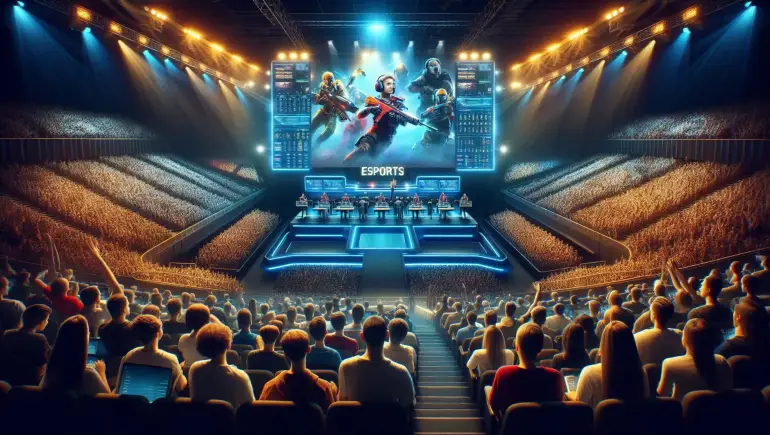
In recent years, Esports has transformed from a niche subculture into a global entertainment powerhouse. What was once a hobby enjoyed in internet cafés is now a billion-dollar industry filling stadiums, streaming to millions, and captivating audiences worldwide. As the line between traditional sports and digital competition blurs, Esports is fast becoming the new face of modern entertainment.
Esports, short for electronic sports, refers to organized, competitive video gaming. Popular titles like League of Legends, Counter-Strike, Dota 2, and Fortnite pit professional players and teams against each other in high-stakes matches streamed live across platforms like Twitch and YouTube Gaming. These events are often hosted in arenas filled with fans, complete with professional commentators, analysts, and even halftime entertainment.
The exponential growth of Esports has been fueled by the digital-first habits of Gen Z and millennials. In a world dominated by streaming, social media, and online communities, Esports fits perfectly into the way people consume content today. According to industry reports, global Esports revenue surpassed $1.6 billion in 2024, with projections to grow even further in 2025 and beyond.
Major sponsors, tech giants, and sports organizations are all investing in Esports. Companies like Coca-Cola, Intel, and Red Bull sponsor teams and events, while traditional sports clubs, such as FC Barcelona and the NBA’s Philadelphia 76ers, have launched their own Esports divisions.
What sets Esports apart is the level of skill, strategy, and dedication required to compete. Professional gamers train for hours each day, analyzing gameplay, improving reflexes, and mastering team coordination. Tournaments like The International or Valorant Champions Tour offer prize pools that rival those of major sporting events like Wimbledon or the Super Bowl.
Governments and educational institutions are also embracing Esports. Some universities now offer scholarships for Esports athletes, while national teams are being formed for events like the Asian Games, where Esports was officially included as a medal event.
Esports is not just about gaming—it’s an immersive experience. With cinematic production, interactive fan engagement, and celebrity crossovers, it delivers entertainment on multiple levels. Collaborations with artists, influencers, and brands have turned Esports events into cultural phenomena. Take Travis Scott's in-game concert in Fortnite, which attracted over 12 million players live—it blurred the line between music, gaming, and showbiz.
Streaming platforms and social media have also democratized Esports viewership. Unlike traditional sports, fans can interact with players in real time, donate to their favorite streamers, or even co-stream matches. It’s not just watching—it's participating.
As technology evolves, Esports will only become more immersive. Virtual reality (VR), augmented reality (AR), and AI-powered analytics are shaping the next generation of competitive gaming. Meanwhile, blockchain integration and NFTs are creating new monetization avenues and fan ownership experiences.
With global audiences projected to exceed 650 million viewers by 2026, the digital arena of Esports isn’t just here to stay—it’s leading the evolution of how we define entertainment.



-112x63.27.webp)




-132x74.57.webp)



Comments
There are no comments for this Article.